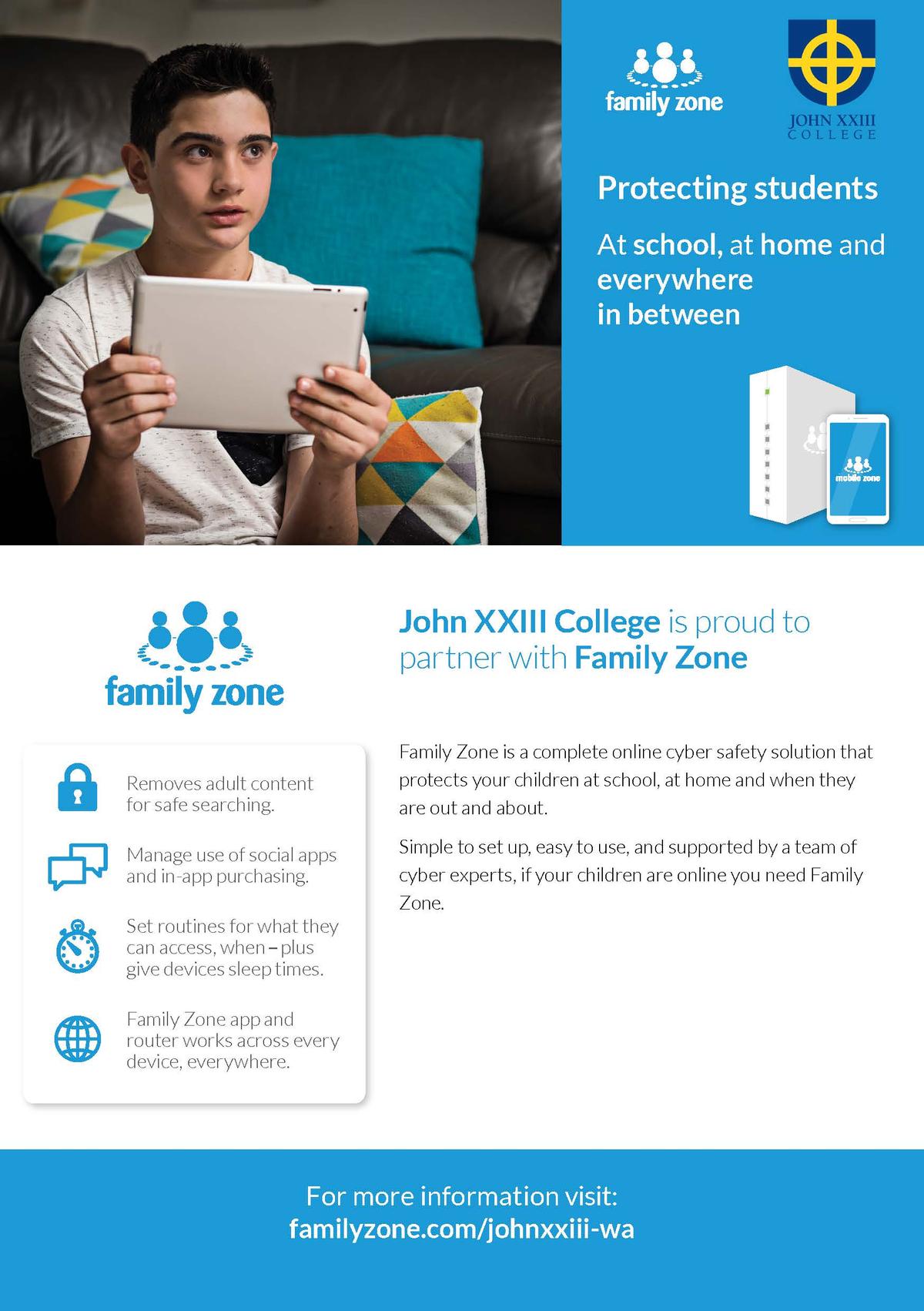Family Zone & Cyber Safety

Download Family Zone
Make use of the Family Zone Accounts which we are offering to John XXIII College families for free, as part of our College contract negotiations until April 2020.
By setting up a private Family Zone account, you can apply age-appropriate parental controls on every device your child has access to, in any location. To find out more visit https://www.familyzone.com/johnxxiii-wa
Family Zone Webinar recordings
For those that were unable to make the Family Zone webinars, we have recorded both sessions for you to view in your own time, and they are available here: https://www.familyzone.com/johnxxiii-wa
Webinar topics are:
- Getting Started with Family Zone
- Advanced with Family Zone
The hours your kids will never get back
A new online platform has been developed to show us exactly how much of our lives device use is gobbling up.
Get ready for a shock.
The Plano Time Machine is an “online experience” that uses algorithms and scientific data to show users exactly how much life they are trading for screen-time.
The platform was launched last week and - in a fitting irony - instantly went viral, attracting thousands of users from 43 countries, including Australia, the US, UK, Singapore and India.
The findings? The average 21-year-old is losing 11 years of life on smart devices.
The average 21-year-old is losing 11 years of life on smart devices.
Singaporeans topped the charts (or bottomed out, depending on your point of view). They spend close to eight hours a day online, which works out to a whopping one-third of their entire lifespan.
Worldwide, the cumulative totals of time lost to screens is on the order of 8.8 trillion hours, or one billion years, annually.
And children are logging on to smart devices at ever-younger ages. The latest data show that up to 97% of children - including those as young as 12 months - are using devices daily.
Research published in the journal Pediatrics found 70% of parents studied gave kids devices when doing household chores, 65% “to keep them calm,” while - most disturbingly - 29% offered screen-time at bedtime.
That’s in direct contradiction to the consensus by experts that devices should be switched off at least half an hour before bedtime to support healthy sleep and prevent addictive behaviours and potentially online abuse.
70% of parents studied gave kids devices when doing household chores, 65% “to keep them calm,” while - most disturbingly - 29% offered screen-time at bedtime.
A recent Australian study, led by Murdoch Children’s Research Institute, found kids from economically disadvantaged families spend a full hour more per day on screens. Children from more affluent families spend an hour more on homework and reading.
Overall, Aussie kids spend an average of 11 hours per day sitting still - much of that time on screens.

